| Lecturers |
|
Prof. Jian Shao
|
Prof. Jian Shao received his B.sc degree in Department of
Electronic Science and Engineering from Nanjing University
in 2003, and his Ph.D degree in Institute of Acoustics,
Chinese Academy of Science in 2008. Currently, he is an
associate professor at the College of Computer Science,
Zhejiang University. His research interests mainly include
cross media analysis and retrieval, unstructured data
management system.
|
|
The Concepts of Knowledge Centre
This tutorial will reveal all the basic element of a Knowledge Centre from
surface, such as background, basic concepts, components of a Knowledge
Centre, well known systems and their evolution, to a deep down discussion of
the how to construct a professional knowledge service system from scratch.
|
|
Prof. Ganwei Shi
|
Prof. Ganwei Shi is research librarian of Zhejiang Sci-Tech
University Library and serves as a member of Consulting and
Research Project Team of Knowledge Centre for Engineering
Sciences and Technology (CKCEST), who has worked in digital
library and computer science for more than 10 years and
participated in several senior projects. Meanwhile he has
experienced in full stack development in NodeJS and devotes
to the research of big data field recently.
|
|
Instruction of Consulting and Research Knowledge Service System Consulting and research knowledge service system is a platform to provide resources discovery and support to academician advisory committees for their strategic consulting researches. This platform involved in many technical frameworks and infrastructures including data collection, data cleansing, data index and data visualization. To accomplish the work we utilized the mainstream technology like NodeJS, RESTful, Elasticsearch, Data Visualization, and BigData etc, which will be introduced next separately. |
|
Prof.Ling Chen
|
Ling Chen joined Zhejiang University in 2004. Currently, he is
an associate professor of computer science. From Jan. 2006
to Jul. 2007, he was a research fellow in The University of
Nottingham, UK. His research interests include databases,
distributed systems, AI, pattern recognition, ubiquitous
computing, and HCI. He is the principal investigator/co-
investigator of lots of national research projects, and has
published over 60 papers, including recent papers in TITS,
DKE, Geoinformatica, IJGIS, IS, and KBS etc.
|
|
Infrastructures for Big Data
Big data have the 3V characteristics (i.e., Volume, Velocity, Variety), and
traditional relational DBMS based infrastructures cannot meet the requirement
of big data. Recently, new infrastructures (e.g., Hadoop, Spark) are emerged
and widely used in different big data applications. In this talk, the basic
concepts and principles of these infrastructures are introduced, including HDFS,
MapReduce, HBase, Hive, Mahout, Imapla, YARN, RDD, Spark SQL, and etc.
|
|
Prof. Donghui
Wang
|
Donghui Wang, received Ph.D. degree in computer science
from Zhejiang University. His research Interests are in
Computer Vision, Machine learning and Artificial
intelligence. His research project “Deep Attribute Feature
learning and Its Application” is supported by National
Natural Science Foundations of China.
|
|
Deep Search
Deep Search is one of key techniques of CKCEST project. It provides an
important tool which can efficiently explore and discover knowledge form
various data sources. Deep Search proposed several innovative models to
search knowledge, which expand the typical search strategies in breadth and
depth. Deep Search also can accept the user’s natural language questions and
return the answers. By using a wealth of knowledge network, Deep Search can
learn to mine the implicit relationship. Deep Search can not only be applied to
CKCEST project, but also as a general technology to other areas.
|
|
Prof. Fei Wu
|
Fei Wu received his B.Sc., M.Sc. and Ph.D degrees in
computer science from Lanzhou University, University of
Macau and Zhejiang University in 1996, 1999 and 2002
respectively. From October, 2009 to August 2010, Fei Wu
was a visiting scholar at Prof. Bin Yu's group, University of
California, Berkeley. Currently, He is a full professor at the
college of computer science, Zhejiang University. His
research interests mainly include multimedia retrieval,
statistical learning and knowledge graph.
|
|
Knowledge Graph Population via Deep Learning
Deep learning is a powerful approach for knowledge graph population. In this
lecture, I will introduce some basic concepts and methods of embedding
entities and relations in a knowledge graph into a low-dimensional continuous
vector space (the distributed representations). As a result, we can employ the
learnt embedding functions to detect the new entities and new relations to
enrich a knowledge graph.
|
|
Prof. Xi Li
|
As a young 1000-plan talent, Dr. Xi Li is currently a full
professor of Zhejiang University, China. From September
2010 to February 2014, he worked as a senior research
fellow in Australian Center for Visual Technologies,,
University of Adelaide, Australia. His research interests
focused on visual surveillance. From June 2009 to June
2010, Xi Li was a postdoctoral researcher in CNRS, ParisTech
Telecom, Paris, France. His research topics were image
segmentation and annotation.
|
|
Large-scale Visual Data Analysis
Massive visual data usually involve a wide variety of topics and events, which
typically characterize their semantic content from either the static or the
dynamic perspectives. Effectively understanding such visual data play an
important role in public event detection, public opinion analysis, and public
security early-warning. It requires to bridge the semantic information across
different modalities, that is, cross-media visual data analysis. Moreover, it is
also interdisciplinary because of involving a set of mutually related research
fields such as computer vision, machine learning, data mining, multimedia,
human cognitive science, etc.
|
|
Prof. Yin Zhang
|
Yin Zhang received his PhD in computer science from ZJU in
2009. His research interests lie in collaborative filtering,
statistical learning, crowd-powered systems and their
applications in digital libraries. He has been involved with
“Chinese Academic Digital Associative Library” since 2004,
responsible for million book search, recommendation and
social annotation services.
|
|
CADAL: A Big Digital Library Project in China
CADAL aims to build a state-of-the-art academic digital library of possessing
massive digital resources of multiple disciplines, multilingual support, wide
range of media by joining efforts of libraries, academic associations and
domain experts in China and internationally. As of now, CADAL has
accomplished the digitization of 2.6 million books, journals, newspapers and
multimedia files. In this talk, we will present the home-grown cloud computing
and artificial intelligence technology underpinning a variety of the online
CADAL content services.
|
|
Prof. Yin Zhang
|
Prof. Yin Zhang received her Ph.D. degree in computer
science from Zhejiang University in 1999, Her research
interests mainly include multimedia and bio-medical
information processing, data mining, knowledge discovery
and knowledge engineering, and digital library. Since 2012,
she has been devoting in the research and development of
the project named "Professional Knowledge Service System
for Chinese Herbal Medicine”.
|
|
Professional Knowledge Service System for Chinese Herbal Medicine
Traditional Chinese Medicine (TCM) plays an indispensable role in the health
care for Chinese people for several thousand years. PKSS-CHM aims to build a
knowledge network of medicine-formula-disease-syndrome in TCM. Built on
top of data aggregation, association and more advanced data and knowledge
processing technologies in the fields of AI and data mining, now PKSS-CHM
grows up to a comprehensive knowledge learning and sharing platform. The
knowledge source of PKSS-CHM includes literature, clinical records, prof-
essional databases and websites. It could help to improve doctors’ clinical
practice, broaden researchers’ horizons, facilitate students’ learning and share
patients’ treatment experiences.
|
| Invited speakers |
|
Prof. Buyue Qian
|
Prof. Buyue Qian is a professor at Dept. of Computer Science,
Xi'An Jiaotong University. His research focuses on applying
Data Mining and AI algorithms to large-scale medical/
healthcare applications. Before joining Xi'An Jiaotong
University. He's the technical lead of several widely used
real-world systems, including Yahoo local and news search,
the transaction risk management system of Royal Bank of
Canada, the railway predictive management system of BNSF.
|
|
Big Data in Healthcare Analytics: Problems, Challenges, and Future
According to the rapid growth and enrichment of healthcare information
systems, large amounts of heterogeneous medical data have been
accumulated. The enormity and complexity of medical data present great
challenges in analysis and subsequent applications to clinical cases. In this
tutorial, we shall introduce the characteristics and technical challenges of
dealing with large-scale medical data, we briefly survey the representative
techniques and insights in healthcare informatics, with different applications
including clinical text mining, predictive modeling, patient similarity, genetic
data analysis, privacy on medical data, and medical image understanding.
|
|
Prof. Kun Bu
|
Prof. Kun Bu, Working at Northeast Institute of Geography and
Agroecology (Changchun, Jilin), Chinese Academy of Sciences.
The research direction is geographic information science and
land use/land cover science. Mainly work including open
source GIS application and industrialization, geographic data
visualization, design and development of WebGIS and GIS
cloud computing system, and science data sharing in
geographic information.
|
|
The Design and Implementation of the Disaster Risk Reduction Knowledge Service Prototype based on WEB and GIS Technology
According to the requirements of UNESCO, from 2016 onwards, IKCEST initiated
the tasks to build the disaster risk reduction (DRR) knowledge service system,
which undertaken by the Institute of Geographical Sciences and Natural
Resources Research, CAS. The aim of the system is to construct the global
disaster meta-database, to create the DRR educational platform, and to
develop the methodology for setting up disaster database of national/local
scales. The course will introduce the design and development of the system,
mainly covering requirements analysis, design and implementation of web
development, metadata service, WebGIS application platform.
|
|
Dr. Jiaoyue Zhang
|
Jiaoyue Zhang earned her Bachelors and Masters in Tsinghua
University and MBA in Peking University. She now leads the
international collaboration work at XuetangX, which is one
of the largest Chinese MOOC platform and initiated by
Tsinghua University. Prior to the work at XuetangX, she
worked at Tsinghua Online Education Office and took charge
of the international partnership. Before that she held 9 years’
experience of business management at Dow Chemical.
|
|
From the World, For the Word-- Dream of XuetangX
XuetangX, initiated by Tsinghua University in 2013, is a MOOC platform,
offering high quality courses from the world’s best universities and institutions
to any learners at anywhere. The mission of XuetangX is to increase the access
to high quality resources for everyone, promote teaching and learning
innovation and enhance education quality by technology and research.
XuetangX has 4 million register users, nearly 900 courses and 6 million course
enrollments. The credit courses are offered and recognized by more than 30
universities in China.
|
|
Dr. Yuantao Kou
|
Dr. Yuantao Kou does research on theory and technology in
agricultural database, construction of information system,
digital library and knowledge service. In the Agricultural Sub-
center of China Knowledge Centre for Engineering Science &
Technology (CKCEST), he is mainly responsible for overall
planning, resource construction, architecture and function
design, as well as development guidance.
|
|
Practice on Agricultural Professional Knowledge Service
The Agricultural Sub-center of China Engineering Science & Technology
Knowledge Centre aims to collect, manipulate and integrate the international &
domestic agricultural knowledge resources; to carry out the researches on key
technologies related to managing, mining and analyzing those resources; to
build up the first-class public platform supporting agricultural science &
technology innovating, managing and decision-making by providing
professional services such as unified search, in-depth analysis, special reports,
hot points monitoring and so on.
|
|
Dr. Zhongxu Li
|
Dr. Zhongxu Li graduated from MIT and Harvard Business
School, majoring in computer science and business
management, to integrate theory with practice, used in the
daily management practices. 18+ years working experiences
in IT industry. 10+ years practice experience at senior
management position of the world's top 500 enterprises.
Proficient in cloud computing, virtualization, big data and the
relevant technology in the field of big data analysis
application and business intelligence. Good at enterprise
architecture, data center and business intelligence solution.
|
|
Cloud Computing Technology and Industry Use Cases
With the evolving towards the big data challenges, introducing the concept of
cloud computing, cloud ecosystem, business model for cloud computing and
major cloud business players, etc. Introducing cloud computing and
virtualization technologies, such as virtualization products and components
providing multiple level resource isolation, support structure, space, projects
and other different permissions and resource management model, security
authentication, data security, separation of domain management, support load
balancing and dynamic elastic scaling based on CPU load, etc. Based on cloud
computing technology, PaaS available commercial innovation mode of the
Internet, to become the next generation of the pioneers of the new mode
software development.
|
|
Big Data Technology and Industry Use Cases
With the beginning of the big data challenges, introducing the concept of big
data, features of big data ecosystem, business model for big data analysis
software, Hadoop Native SQL framework, analysis of MPP databases,
distributed memory grid technology product portfolio etc. With big data suite,
the Apache Hadoop® native SQL database for data science and machine
learning workloads, to manage your data with speed, scale and transparency,
discover deep insights in your data that can transform your business, connect
your data to people through applications. Big Data analysis based on a
commercial fully featured data warehouse powered by the open source MPP
Database is powered by the world’s most advanced cost-based query optimizer
delivering high analytical query performance on large data volumes. It provides
powerful and rapid analytics on petabyte scale data volumes. Uniquely geared
toward big data analytics. Distributed memory grid technology maintain
transaction integrity across distributed nodes.
|
|
Prof. Buyang Cao
|
Dr. Buyang Cao is a professor and Ph. D student supervisor at
School of Software Engineering, Tongji University. He earned
doctor degree in Operations Research. Before he joined
Tongji University, he had been with Esri, Inc., the world
largest GIS service/product provider, for decades. Dr. Cao
led and was involved in multiple national key projects and
designing/developing application systems for Fortune 500
enterprises.
|
|
Data Analytics and Its Applications in Smart Cities
Nowadays as data analytics and big data technologies get more popular, they
have great influences in a variety of application arenas. In this presentation we
discuss how to apply data analytics and big data technologies to help
implementing smart cities concepts. By gathering data from various sources
and conducting modeling and analytical activities, we are able to establish the
indicating system to evaluate or judge the urban development process in terms
of sustainability. The corresponding technologies help us to identify the
problems and provide more reasonable solutions or suggestions to the
encountered problems.
|
|
Prof. Jiao Li
|
Prof. Jiao Li had postdoctoral training at the National Center
for Biotechnology Information (NCBI), National Institutes of
Health (NIH) from 2010 to 2012. Her research interests
include biomedical informatics, consumer health informatics,
natural language processing, and data mining. She has more
than 30 research papers published in international medical
informatics venues such as Briefings in Bioinformatics, BMC
Medical Informatics and Decision Making, Journal of
Biomedical Informatics.
|
|
Medical Data Integration and Knowledge Service
Medical Knowledge Service System is constructed under the background of
biomedical big data and data-intensive research, aiming to be a first-class
nonprofit, open knowledge service platform. To meet needs of engineering and
technical personnel in the field of medical and health, we focus on major
chronic diseases (cardiovascular, cancer, etc.), integrate types of data resources,
such as literature, scientific data, news, encyclopedia, domain experts and
research institute and provide various knowledge services, such as cross-
language information retrieval, mobile reading, scientific data mining, and
resources navigation.
|








 User Center
User Center My Training Class
My Training Class Feedback
Feedback




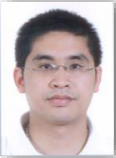

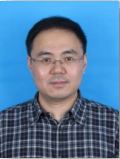
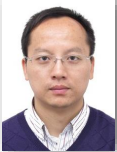
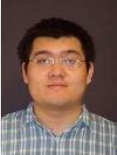

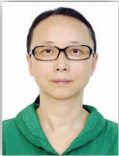

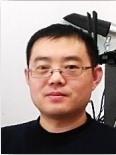

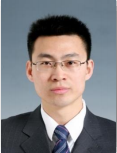











Comments
Something to say?
Login or Sign up for free